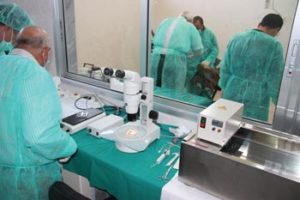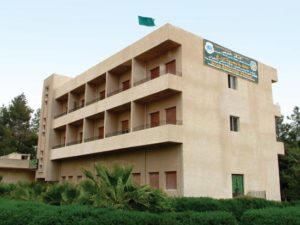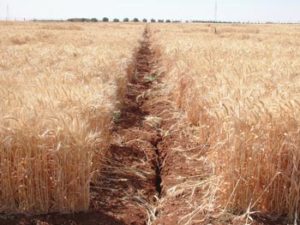Ezra’a Research Station
Site and climate:
It was established in the year 1973. It is 80 km away from the south of Damascus city, at an altitude of 575 m above the sea and with an area of 50 ha. It enjoys a Mediterranean climate which is cold and rainy in winter and hot and dry in summer, with a rainfall average of 290 mm annually. Its soil is red, heavily clay, poor with organic matter and cracked when drought occurs.
Objective:
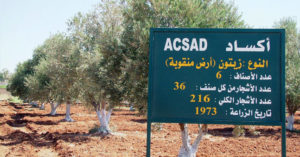
Increase crop and fruit tree productivity, improve sheep and goat productive and reproductive efficiency and develop Arab staff’s knowledge in the fields of environment and development.
Infrastructure:
- Administrative offices and well-supplied training center for 40 trainees.
- Laboratories for seed preparation and analysis, biogas, artificial insemination, embryo transfer and animal pregnancy testing.
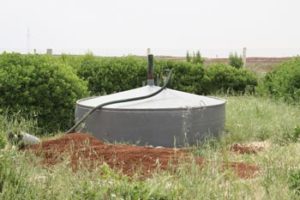 Necessary equipment and supplies for experiment implementation, forage mowing, straw molding, sprinkle irrigation and digestion boxes for animal feeding experiments.
Necessary equipment and supplies for experiment implementation, forage mowing, straw molding, sprinkle irrigation and digestion boxes for animal feeding experiments.
- Animal barns and accessories.
- Ready-made fodder plant.
- Storing warehouses and machinery garage.
Activities:
- Develop highly-productive and environmental stress-tolerant improved varieties and lines of wheat, barley and sorghum, identify the appropriate agricultural techniques and disseminate results among Arab countries.
- Identify the appropriate techniques for the cultivation of fruit trees that are suitable for the arid and semi-arid areas, and produce reliable seedlings and cuttings to be distributed among Arab countries.
- Evaluate local and external pastoral and forest plant species, and propagate and distribute the appropriate pastoral seeds among Arab countries.
- Improve the productive and reproductive efficiency of Awassi sheep and Shami goats, distribute improved animals and semen straws to improve sheep and goats productivity in the Arab countries and follow-up their performance.
- Produce forage to feed the goats and sheep flocks at the station.
- Implement specialized training courses in the plant and animal production fields.
